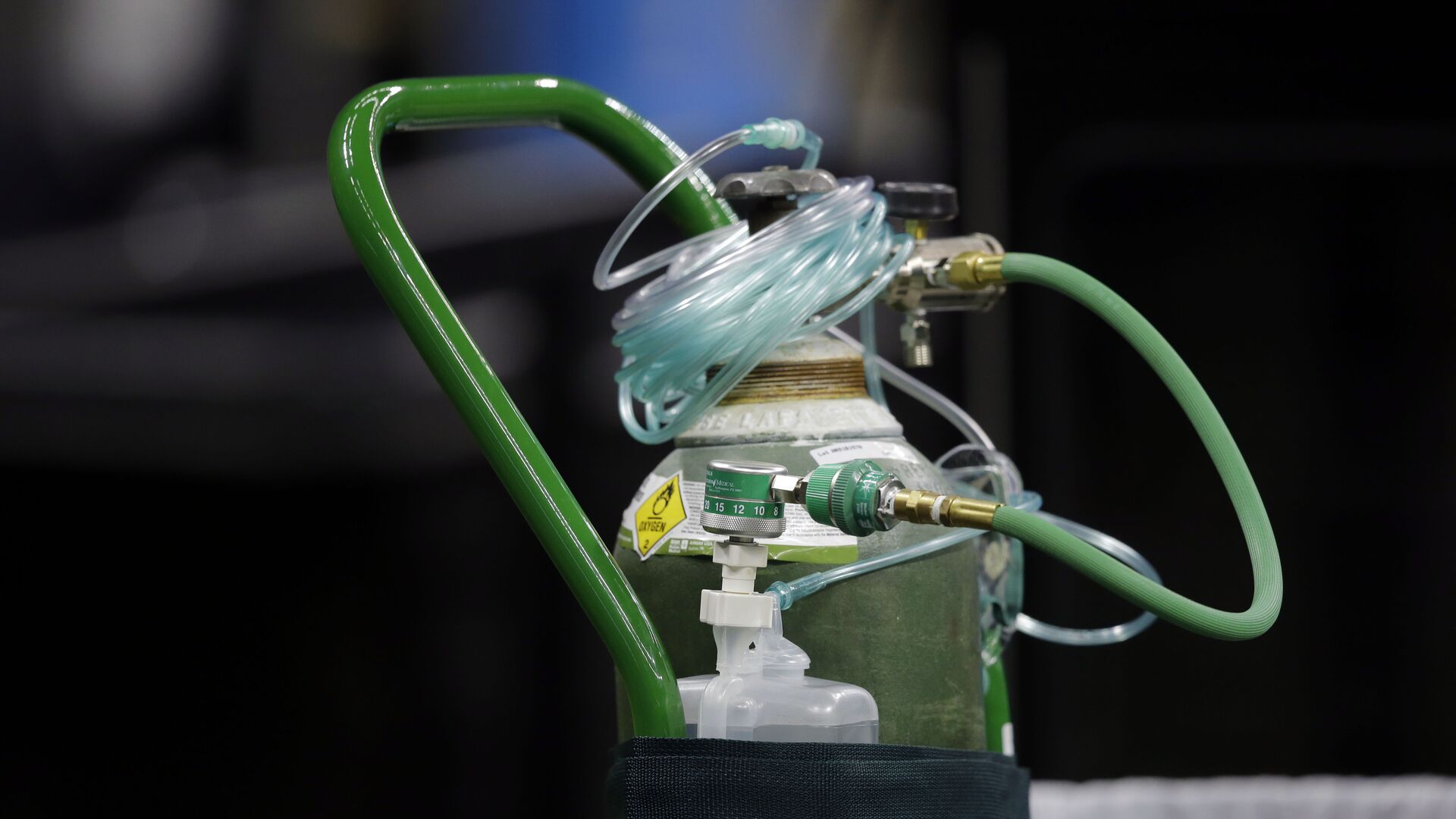https://en.sputniknews.africa/20230831/1061761614.html
Scientists Discover Completely New Type of Oxygen
Scientists Discover Completely New Type of Oxygen
Sputnik Africa
It is the heaviest oxygen isotope ever seen and it is behaving in a strange way: that's oxygen-28, one of two new isotopes of the element to have recently been... 31.08.2023, Sputnik Africa
2023-08-31T13:03+0200
2023-08-31T13:03+0200
2023-08-31T13:03+0200
science
japan
tokyo
earth
discovery
international
https://cdn1.img.sputniknews.africa/img/07e7/08/1f/1061762969_0:270:5184:3186_1920x0_80_0_0_349e1d52723ae865670d82902e0178f3.jpg
Scientists in an atomic lab in Japan have created two new forms of oxygen with puzzling properties, challenging prevailing theories about atomic structure.Yosuke Kondo of Tokyo Institute of Technology writes in an article published in Nature on Wednesday that her crew of scientists subjected some elements to "extreme conditions” to cause the formation of oxygen-28 and another isotope, oxygen-27, which is slightly smaller.To force the new isotopes of oxygen to form, Kondo’s team used the RIKEN Radioactive Isotope Beam Factory in the Japanese city of Saitama. Officials fired a beam of calcium-48 isotopes at a beryllium target to break off pieces of the – which has 20 protons in its nucleus – and produce lighter atoms. Among those produced were atoms of fluorine-29, which has 9 protons and 20 neutrons and sits next to oxygen on the Periodic Table.Researchers then took this fluorine-29 atom and smashed it together with a liquid hydrogen atom – which has 1 proton in its nucleus – to trim the fluorine down into oxygen. It worked, and they produced two different atoms using the procedure, one with 20 neutrons and one with 19 - oxygen-28 and oxygen-27, respectively.Stability was expected due to mathematical relationships governing "shells" of particles in the nucleus, in which multiples of eight and 20 are considered "magic" numbers due to their typically high stability. Kondo's team expected oxygen-28 to be stable because its isotope number is "doubly magic."For example: the form of oxygen we breathe here on Earth is oxygen-16, which is a multiple of eight and is extremely stable – so don’t worry, your breath isn’t about to be spontaneously taken away!
https://en.sputniknews.africa/20230830/1061737654.html
japan
tokyo
earth
Sputnik Africa
feedback@sputniknews.com
+74956456601
MIA „Rossiya Segodnya“
2023
News
en_EN
Sputnik Africa
feedback@sputniknews.com
+74956456601
MIA „Rossiya Segodnya“
Sputnik Africa
feedback@sputniknews.com
+74956456601
MIA „Rossiya Segodnya“
science, japan, tokyo, earth, discovery, international
science, japan, tokyo, earth, discovery, international
Scientists Discover Completely New Type of Oxygen
It is the heaviest oxygen isotope ever seen and it is behaving in a strange way: that's oxygen-28, one of two new isotopes of the element to have recently been created in a lab.
Scientists in an atomic lab in Japan have created two new forms of oxygen with puzzling properties, challenging prevailing theories about atomic structure.
Yosuke Kondo of Tokyo Institute of Technology writes in an
article published in Nature on Wednesday that her crew of scientists subjected some elements to "extreme conditions” to cause the formation of oxygen-28 and another isotope, oxygen-27, which is slightly smaller.
To force the new isotopes of oxygen to form, Kondo’s team used the RIKEN Radioactive Isotope Beam Factory in the Japanese city of Saitama. Officials fired a beam of calcium-48 isotopes at a beryllium target to break off pieces of the – which has 20 protons in its nucleus – and produce lighter atoms. Among those produced were atoms of fluorine-29, which has 9 protons and 20 neutrons and sits next to oxygen on the Periodic Table.
Researchers then took this fluorine-29 atom and smashed it together with a liquid hydrogen atom – which has 1 proton in its nucleus – to trim the fluorine down into oxygen. It worked, and they produced two different atoms using the procedure, one with 20 neutrons and one with 19 - oxygen-28 and oxygen-27, respectively.
Stability was expected due to mathematical relationships governing "shells" of particles in the nucleus, in which multiples of eight and 20 are considered "magic" numbers due to their typically high stability. Kondo's team expected oxygen-28 to be stable because its isotope number is "doubly magic."
For example: the form of oxygen we breathe here on Earth is oxygen-16, which is a multiple of eight and is extremely stable – so don’t worry, your breath isn’t about to be spontaneously taken away!


